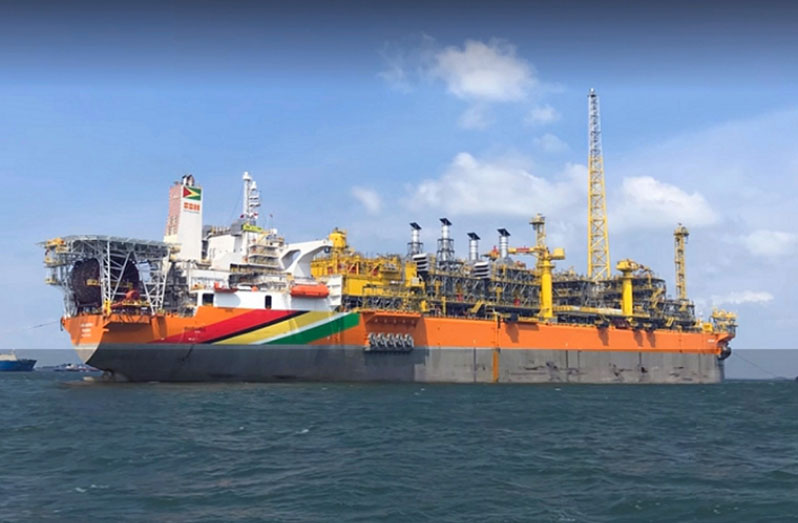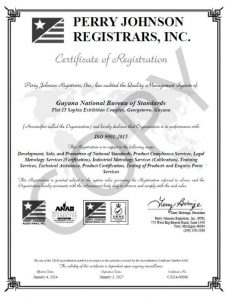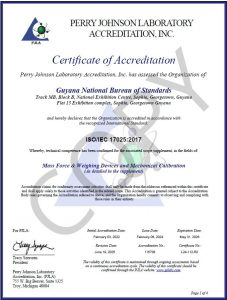The Guyana National Bureau of Standards (GNBS) has significant roles in both offshore and onshore activities as it relates to Guyana’s Oil and Gas Sector. Broadly, the National Standards Body is responsible for the monitoring of measurements on the Floating Production Storage and Offloading (FPSO) vessel, which commenced at first oil. In 2022, the Bureau will fully take over the responsibility of testing the crude oil brought to the surface to determine a number of quality parameters.
The Bureau is mandated under the Weights and Measures Act of 1981 to carry out its measurement functions in any of Guyana’s sectors. This legislation allows the GNBS to provide verification services and ensure the accuracy of all weighing and measuring instruments used in trade. For Oil and Gas, in January 2020, an official order was gazetted for the GNBS to perform the functions of measuring and certifying crude oil being lifted onboard the FPSO. Since then, GNBS Inspectors on a rotational basis, travel to the offshore vessel to conduct the requisite monitoring activities.
In 2021, the GNBS establish the Oil and Gas department to better streamline these activities and monitor the sector.
Importantly, GNBS monitoring activities in the Sector are done in accordance with the American Petroleum Institute (API) Standards, which are recognised globally. These standards relate to the accuracy of flow meters, Tank Gauging, Sampling and testing of Crude. To ensure access to these standards and other crucial benefits, in mid-2021 the GNBS fortified its relationship with the API by signing a Memorandum of Understanding (MoU) with them.
Meanwhile, in anticipation of the arrival of Lisa Unity to join Lisa Destiny, in 2021 the GNBS employed six additional Inspectors to service both vessels. Investments were made to train and build the competence of both its old and new Oil and Gas Inspectors for them to effectively and efficiently serve the sector. Inspectors were exposed to both practical and theoretical aspects of measurement and safety standards and principles.
Training completed by Inspectors included the review of the flow process of the meter skid on the FPSO and verification of measurement points, equipment type, sample points, valve sealing process and the calibration of a prover loop based on the water-draw method. Inspectors are significantly knowledgeable on the fiscal Metering System and the importance of ensuring that the equipment used at the critical measuring points is calibrated. Accuracy of the custody transfer meters is essential for any oil and gas platform since this is used to determine the quantity and financial value of product transactions.
For safety, Inspectors have completed and are certified in the Emergency Breathing Systems (EBS) and Tropical Helicopter Underwater Escape Training (T-HUET).
Regarding crude testing, the GNBS will commence this service from this January starting with two of five parameters. With the acquisition of additional equipment, in the short –term capacity will be fully built to test for all of the parameters. Crude testing would be done to determine Density and Viscosity, Basic Sediments and Water, Salt in Crude, Hydrogen Sulphur in Crude, and Water Content.
The GNBS with support from the Government of Guyana and other partners in Standardisation will continue to directly ensure that its measurement and testing services are provided onshore and offshore to protect the interest of the people of Guyana.
For further information, please visit the GNBS Website: www.gnbsgy.org or call telephone numbers: 219-0064-66 or WhatsApp: 692-4627.






